
To subscribe to the fortnightly ALGA News, please click here.
-
Round 2 guidelines for the Regional Connectivity Program have been released, with local councils and regional communities encouraged to apply for funding. Funding of $112 million has been allocated for Round 2 of the RCP, bringing to $229 million the total amount invested in the delivery of “place-based” telecommunications infrastructure projects to improve digital connectivity+
Posted 10 December, 2021 -
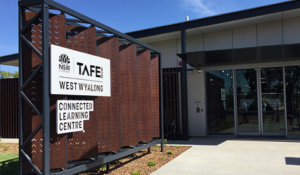
A national survey to help local government address current skill shortages and identify emerging and future skills needs began this week. Local governments are encouraged to complete the survey to enable a comprehensive analysis of the local government workforce. The survey is part of the Local Government Workforce and Organisational Capacity Project which has been+
Posted 10 December, 2021 -
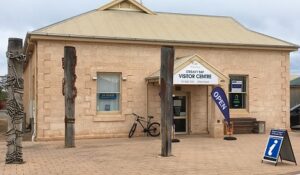
Australia’s visitor economy needs to diversify its destinations, modernise assets, and collaborate for it to become a top-five export income earner, a new report has advised. An expert panel economy led by former federal tourism minister Martin Ferguson prepared the report, which includes a draft strategy “for the long-term recovery and sustainable growth” entitled Thrive+
Posted 10 December, 2021 -
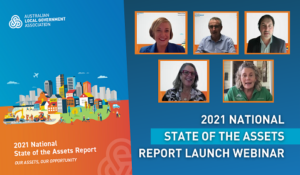
Two-thirds of all local government assets are in good condition and meet community expectations. Community infrastructure is also lasting longer, while the proportion of infrastructure assets in a poor state of repair has remained relatively constant. The findings are contained in the 2021 National State of the Assets (NSoA) Report published by the Australian Local+
Posted 10 December, 2021 -
There were 190,800 people working in local government at the end of June 2021, new Bureau of Statistics figures show. This is about 4800 more people than were employed at the same time in 2020. Of those people employed in local government in 2021, 54,900 were in NSW, 52,300 in Victoria, 43,300 in Queensland, 10,700+
Posted 29 November, 2021 -
Disaster assistance has been made available to 25 local government areas in NSW and Queensland affected by severe storms and flooding in early to mide November. The assistance for NSW is being provided to the Bathurst, Blayney, Blue Mountains, Brewarrina, Broken Hill, Cabonne, Cobar, Cowra, Forbes, Gilgandra, Gunnedah, Gwydir, Lachlan, Moree Plains, Narrabri, Port Macquarie+
Posted 29 November, 2021 -
Voting has opened for the National Awards for Local Government with local governments and the public being urged to cast a ballot to acknowledge outstanding community solutions. Voters can choose from 10 nominations in seven of the eight categories. There are three nominations in the Women in Local Government category. Click here to see the+
Posted 29 November, 2021 -
Some 2025 National Packaging Targets will not be achievable without interventions, a new report suggests. The Australian Packaging Covenant Organisation (APCO) says plastic remains a concern, with recovery rates showing no significant improvements over a three-year period. “Modelling predicts a recovery rate of 36 percent with currently planned infrastructure and capacity improvements,” the report says.+
Posted 29 November, 2021 -
A national campaign to help reduce household food waste has been launched by food rescue group OzHarvest. The Use It Up campaign features a new product innovation, Use It Up Tape™ designed to make it easy for consumers to waste less. The tape can be used in pantries, fridges or freezers to mark out a+
Posted 29 November, 2021 -
The Regional Banking Taskforce is calling for public comment as it investigates how branch bank closures are affecting regional communities. To that end, an issues paper and guidelines for making submissions were published last week by the Federal Treasury. The taskforce was established on 22 October, with the Australian Local Government Association (ALGA) among its+
Posted 29 November, 2021 -
Nominations are being sought for the Federal Environment Minister’s product stewardship priority list for 2022-23. In a departure from previous practice, the public is being encouraged to contribute suggestions, along with industry and governments. The annual list identifies products and materials for which industry is expected to take product stewardship action to reduce the environmental,+
Posted 29 November, 2021 -
Phase 3 of the Local Roads and Community Infrastructure (LRCI) program has begun, with guidelines for councils seeking project funding now online. A broad range of local road projects can be nominated under the $2.5 billion program, such as traffic signs, street lighting, bridges, tunnels, rest areas, or even road and sidewalk improvements. Community infrastructure+
Posted 29 November, 2021 -
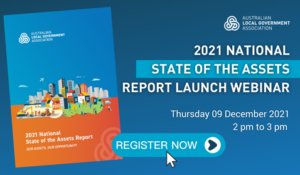
The National State of the Assets Report 2021 will be launched on 9 December with the key findings to be discussed at an interactive webinar. Federal Assistant Minister for Local Government Kevin Hogan will attend the launch, along with Infrastructure Australia CEO Romilly Madew, National Farmers Federation President Fiona Simson, and IPWEA President Myles Lind.+
Posted 29 November, 2021 -

State governments should get behind local government efforts to create a healthy and sustainable food system in Australia, a new report says. Councils are already involved in food safety regulations as well as supporting sustainable local food production and reducing food waste, but could potentially do more to encourage the consumption of healthier foods as+
Posted 29 November, 2021 -
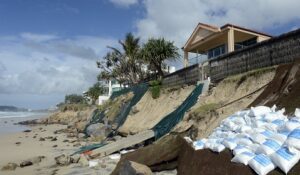
Governments will need to invest $30 billion in large-scale coastal protection and adaptation over the next 50 years, the Insurance Council of Australia (ICA) says. A new report prepared for the ICA by Baird Australia says climate change is driving rising sea levels and exacerbating coastal hazards such as tidal inundation, coastal and estuarine inundation,+
Posted 29 November, 2021 -
An updated suite of resources addressing gender inequality and violence against women has been published by Our Watch. Our Watch CEO Patty Kinnersly said the revised evidence-based framework went beyond addressing individual behaviours to consider the broader social, political, and economic factors that drive violence. “The evidence shows that we can stop violence against women+
Posted 29 November, 2021 -
Australia’s biosecurity defences have been boosted with another 96 more officers assigned to target frontline biosecurity risks. The deployment follows a major Commonwealth recruitment drive for biosecurity officers earlier this year in response to threats posed by African swine fever (ASF) and “hitchhiker pests” like khapra beetles. Agriculture and Northern Australia Minister David Littleproud said+
Posted 29 November, 2021 -

WIN! Advocacy on Federal Assistance Grants Rewarded ALGA welcomes news last week that the Morrison Government has no plans in the short to medium term to review how Financial Assistance Grants are distributed by state/territory jurisdictions. We welcome the Federal Assistant Minister for Local Government, the Hon Kevin Hogan MP’s undertaking. The ALGA Board has+
Posted 29 November, 2021 -
The Future Drought Fund has published its first annual report and is inviting stakeholders to comment on its work to ensure effective future outcomes. The $5 billion fund was established in 2019 to provide a secure, continuous funding stream for drought resilience initiatives. The fund’s foundational programs announced in July 2020 include farm business resilience,+
Posted 12 November, 2021 -
Disaster assistance has been made available to communities in Victorian and South Australian local government areas affected by recent storms. The storms in Victoria caused widespread power outages and damaged roads. The Victorian local government areas where assistance is on offer include Banyule, Bass Coast, Bayside, Cardinia Shire, Casey, Colac Otway, Frankston, Glen Eira, Greater+
Posted 12 November, 2021 -
A webinar exploring how local governments can broaden support for efforts to retain trees on private property will be held on 25 November. The webinar is being convened by ICLEI Oceania and is targeted at elected officials, leaders, and officers from municipal, metropolitan, and regional authorities across Australia, community members, the private sector, and academia.+
Posted 12 November, 2021 -
Housing supply, design, and maintenance in Indigenous communities needs to be reassessed in light of the growing impacts of climate change, new research suggests. The Australian Housing and Urban Research Institute (AHURI) says indigenous and remote communities will experience climate change earlier and disproportionately compared with urban settings. In its latest report, AHURI says operating+
Posted 12 November, 2021 -
The effectiveness of fuel reduction burning varies greatly by region and researchers and practitioners continue to disagree about optimum strategies. A Parliamentary Library research paper published on 28 October also suggests there are significant knowledge gaps about fuel reduction burning, especially regarding its long-term effects. “Recent fuel reduction burns will modify fire behaviour even under+
Posted 12 November, 2021 -
A new circular economy centre of excellence in Adelaide will work with businesses to commercialise new projects and innovations. The centre, to be established at the Lot Fourteen innovation precinct in central Adelaide, will be administered by Circular360. The South Australian State Government is investing $1 million over three years in the centre’s development. State+
Posted 12 November, 2021 -
Many councils manage vertebrate pests and invasive weeds in their local communities, but little is understood of the extent of these efforts nationwide. A broader perspective of the collective work of councils will better inform policymakers at a national level on management priorities in relation to established vertebrate pests and weeds, and resource allocation to+
Posted 12 November, 2021 -
A National Adaptation Policy Office is to be established as part of the new National Climate Resilience and Adaptation Strategy released last month. The strategy is intended to help communities prepare for climate changes “that cannot be avoided, even with global efforts to reduce emissions”, and was announced on the eve of the COP26 climate+
Posted 12 November, 2021 -
Local government projects honouring the service and sacrifice of Australia’s service personnel may be eligible for federal government grants. The Saluting Their Service (STS) Commemorative Grants Program offers funding to assist local communities planning commemorative projects, with $3.5 million earmarked for distribution in the 2021-22 financial year. The types of eligible projects can include: updating+
Posted 12 November, 2021 -
Councils around Australia have one more week to secure up to $30,000 in grants for community events delivered on Australia Day 2022. The grants are being made available through the National Australia Day Council (NADC). NADC chief executive Karlie Brand said councils play a vital role in marking Australia Day, delivering hundreds of events, including+
Posted 12 November, 2021 -
New funding of $250 million has been announced for the Bridges Renewal and Heavy Vehicle Safety and Productivity Programs. Under revised guidelines for the two programs, project proponents can apply for funding to cover up to 80 percent of the total project cost. In another first, the BRP and HVSPP will run concurrently and with+
Posted 12 November, 2021 -

The Bureau of Meteorology is trialling a heatwave warning service with state and territory governments aimed at helping councils, communities and individuals to better plan and prepare for heatwaves. The Bureau has been working across Australian governments, including with local governments in Sydney’s west regarding council requirements on heatwaves. The Bureau publishes public 7-day heatwave+
Posted 12 November, 2021 -
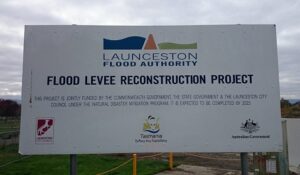
Guidelines for the community infrastructure funding stream of the $600 million Preparing Australia Program have been published ahead of applications opening in December. Grants of between $20,000 to $10 million will be available for proponents of projects which help communities “assess and plan for disaster risk, increase capacity and raise awareness of disaster risk, or+
Posted 12 November, 2021 -

Our strong advocacy for greater targeted funding support for local government mitigation projects paid off last week with the release of the guidelines for the local communities component of the Preparing Australia Program. I’m pleased to report that the Preparing Australian Communities Program is now open to all local government areas at high risk of+
Posted 12 November, 2021 -
Entries for the 2021 National Local Government Awards have opened, with eligible councils invited to nominate projects across eight categories. The nomination process for this year’s awards has been simplified to enable shorter online submissions – and for the first time, councils can recognise the work and achievements of their peers in the local government+
Posted 2 November, 2021 -
The NSW local government areas of Coffs Harbour, Armidale, Oberon, and Wollondilly have been offered disaster assistance after severe storms and flooding this month. A tornado hit the city of Armidale on 14 October, toppling trees and power lines in the city and surrounds, destroying cars and buildings. Thousands of homes were also left without+
Posted 2 November, 2021 -
Six major off-the-road (OTR) tyre importers will join the voluntary Tyre Product Stewardship Scheme from January 2022. They include Bearcat, Bridgestone Mining Solutions, Goodyear, Kal Tire, Michelin, and Yokohama. The national Tyre Product Stewardship Scheme promotes the increase in environmentally sustainable collection and recycling processes and to explore and promote new products and uses for+
Posted 2 November, 2021 -
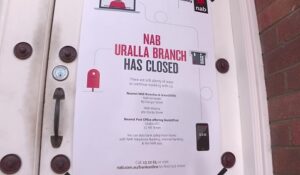
The Australia Local Government Association (ALGA) will work with a federal task force to mitigate the impacts of bank branch closures on rural communities. The Regional Banking Task Force will “bring together banks and other key stakeholders to assess how bank branch closures have impacted local businesses, industries, and communities, and work collaboratively to identify+
Posted 2 November, 2021 -
A guide to help councils secure the internet of things (IoT) for a smart city or location has been compiled by the Australian Computer Society (ACS). A non-technical publication, the short guide has been written specifically for those local government personnel responsible for business operational risk and purchasing decisions. For local governments, IoT has become+
Posted 2 November, 2021 -
Transport infrastructure managers are being encouraged to take part in an online survey to assess the impact of utilities on local roads. With roads increasingly congested by overhead transmission lines and underground services, Austroads has begun a project to reduce the negative impacts of these assets on the delivery of transport infrastructure projects, while ensuring+
Posted 2 November, 2021 -
A recycled materials assessment project has begun in South Australia with the aim of building local councils’ confidence in the use of recycled materials. The Australian Road Research Board (ARRB) was engaged by Green Industries South Australia (GISA) to undertake the project, which involves compiling a “knowledge capture” of innovative and sustainable pavement materials. Following+
Posted 2 November, 2021 -
Eight major food businesses have pledged to work towards meeting or bettering the Commonwealth’s goal to halve food waste by 2030. The voluntary Australian Food Pact was launched on 21 October, with Woolworths, Coles, Goodman Fielder, Simplot Australia, Mondelez Australia, and McCain Foods among the eight signatories. Stop Food Waste Australia – of which the+
Posted 2 November, 2021 -
Guidelines for Round 2 of the Regional Connectivity Program – focusing on Northern Australia – are being finalised, with grant applications to open shortly. The program provides competitive grants allowing investment in projects that improve internet accessibility in regional, rural and remote communities. Round 2 will include additional funding under the Connecting Northern Australia initiative.+
Posted 2 November, 2021 -
A new round of grant funding to help local governments address waste infrastructure gaps in remote areas has opened under the Recycling Modernisation Fund. The round is focused on increasing the sorting, processing, and manufacturing or remanufacturing capacity of regional and remote locations, and will total $7 million. Co-funded grants of between $10,000 and $1+
Posted 2 November, 2021 -
Councils will be offered between 80 and 100 percent of funding to upgrade unsealed roads in a new federal program unveiled this week. The $150 million Remote Roads Upgrade Pilot Program will target safety on unsealed roads, including resurfacing, removing dangerous corners, and managing vegetation. The focus will be on unsealed roads more than 20km+
Posted 2 November, 2021 -
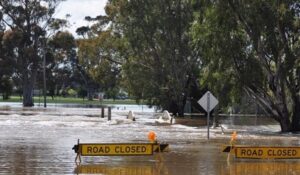
Natural disasters will cost Australia $73 billion by 2060, even under a low emissions scenario, a new business roundtable report suggests. The Australian Business Roundtable for Disaster Resilience and Safer Communities says the $79 billion forecast is “significantly higher” than the $39 billion by 2050 cost it estimated in 2017. The Roundtable’s latest report on+
Posted 2 November, 2021 -

The Telecommunications Industry Ombudsman (TIO) is urging the Commonwealth to invest more to improve telco services in regional and rural areas. In a submission to the Regional Telecommunications Review 2021, the agency said the government should: provide grants and other investment incentives to promote a wider range of services; standardise mobile coverage information that is+
Posted 2 November, 2021 -

The 2021-22 high-risk weather season has arrived – along with renewed concerns about disaster preparedness and capability. Our commitment to working with our communities to help them prepare for whatever this cyclone and bushfire season might throw up remains rock solid. However, we need greater support and stronger partnerships across all tiers of Government, and+
Posted 2 November, 2021 -

The final pieces in ALGA’s federal election campaign are now being put in place, with key aspects of our advocacy strategy about to be road-tested. Thank you to all our state and territory associations for their contributions in the development of the strategy, which is based on a simple but compelling message – Don’t Leave+
Posted 15 October, 2021 -
In a world where environmental responsibility is becoming a “must-have”, EcoTeq has released an all-electric range of outdoor maintenance equipment. The company’s next-generation technology, perfected in Europe and North America, means organisations and governments looking to reduce their carbon footprint don’t need to choose between the environment, safety, or productivity. EcoTeq CEO Michael Mathews says+
Posted 15 October, 2021 -
Consultation on the development of Australia’s next National Digital Health Strategy has begun, with feedback sought from local governments. To further enhance digital healthcare for all Australians, the Australian Digital Health Agency would like to learn from local governments which are leveraging digital health to improve the health and wellbeing of their communities. New models+
Posted 15 October, 2021 -
The National Landcare Program is being reviewed to ensure it is working as intended to protect biodiversity and engender sustainable agricultural practices. The NLP is the federal government’s key natural resource management (NRM) commitment, and the review is examining how phase two of the program has impacted the delivery of NRM activities since its commencement+
Posted 15 October, 2021 -
A website promising a dramatically streamlined business registrations process was launched by the Australian Taxation Office on 6 October. The website for the newly established Australian Business Registry Services (ABRS) will consolidate the 31 business registers administered by the Australian Securities and Investments Commission (ASIC) – including ABNs and ACNs – and the Australian Business+
Posted 15 October, 2021 -
A program to help storm and flood-impacted primary producers and industries in 78 NSW local government areas has opened for applications. The $80 million Storm and Flood Industry Recovery Program is being jointly funded by Commonwealth and NSW Governments under Disaster Recovery Funding Arrangements. The program is one part of the $790 million NSW Storm+
Posted 15 October, 2021


